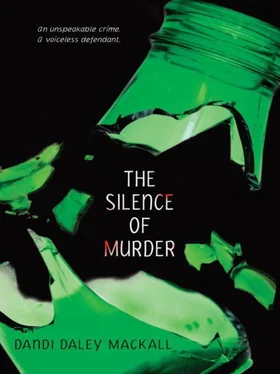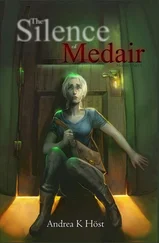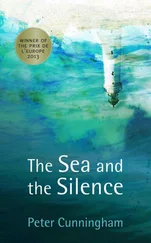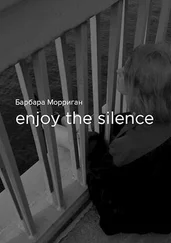Dandi Mackall - The silence of murder
Здесь есть возможность читать онлайн «Dandi Mackall - The silence of murder» весь текст электронной книги совершенно бесплатно (целиком полную версию без сокращений). В некоторых случаях можно слушать аудио, скачать через торрент в формате fb2 и присутствует краткое содержание. Жанр: Триллер, на английском языке. Описание произведения, (предисловие) а так же отзывы посетителей доступны на портале библиотеки ЛибКат.
- Название:The silence of murder
- Автор:
- Жанр:
- Год:неизвестен
- ISBN:нет данных
- Рейтинг книги:3 / 5. Голосов: 1
-
Избранное:Добавить в избранное
- Отзывы:
-
Ваша оценка:
- 60
- 1
- 2
- 3
- 4
- 5
The silence of murder: краткое содержание, описание и аннотация
Предлагаем к чтению аннотацию, описание, краткое содержание или предисловие (зависит от того, что написал сам автор книги «The silence of murder»). Если вы не нашли необходимую информацию о книге — напишите в комментариях, мы постараемся отыскать её.
The silence of murder — читать онлайн бесплатно полную книгу (весь текст) целиком
Ниже представлен текст книги, разбитый по страницам. Система сохранения места последней прочитанной страницы, позволяет с удобством читать онлайн бесплатно книгу «The silence of murder», без необходимости каждый раз заново искать на чём Вы остановились. Поставьте закладку, и сможете в любой момент перейти на страницу, на которой закончили чтение.
Интервал:
Закладка:
I’ve already agreed to this, but I don’t like it. Everybody else thinks it’s weird that my brother collects empty jars, but I don’t. I tell Raymond a bunch of stories, like how Jer always carries a couple of jars in his backpack and sometimes gets them out and opens and closes them. Then I tell him about the time we were in the IGA and Jeremy loaded up his backpack with Mason jars, then threw a fit when I took the jars out and put them back on the shelf.
“Good,” Raymond says, scribbling notes. “You can tell that one-just like that, Hope. What else?”
It feels like I’m tattling on my brother, but I keep going. “Most of the time, he uses regular jars that are empty. He peels off the labels. I have to wash them fast, when he’s not looking, before he puts them in his pack or squirrels them under his bed. They can really stink if I don’t.”
“What does he do with all those jars?” Raymond asks, still writing.
I don’t know if he’s asked for real or for practice, but I answer anyway. “He saves them. Sooner or later, they end up on the shelves in his bedroom. I’ve never counted, but he probably has a couple hundred in every shape and size.”
“Keep talking, Hope.”
I have so many memories of Jeremy and his jars. It’s hard to settle on a single story. “Sometimes, if a jar of mayonnaise is almost empty, he’ll dump out what’s left-usually into the wastebasket, but not always.”
I remember a day about four years ago. I can almost see Jeremy in his jeans and a gray sweatshirt I got him at the Salvation Army thrift store. His whole body is wound tight, and his eyes bulge. He’s in the kitchen, with the refrigerator door open. At his feet is a pile of long, sliced dill pickles swimming in a sea of yellow-green pickle juice.
“Once,” I begin, “Jeremy came running into the house, dashed to his room, then darted out again. He was pacing the kitchen floor and refused to stop long enough to write me what was wrong. For whatever reason-and we never know the reason-Jeremy needed a jar. A fresh jar. Before I could stop him, he took out a giant jar of pickles and dumped the whole thing onto the floor. I just stood there, staring, while he tucked that jar into his chest like a football and ran back to his room, closing the door behind him. He didn’t come out the rest of the night.”
“What did you do?” Raymond asks.
“I cleaned up the kitchen. The next day I took a lot of flak from Rita for eating a whole jar of newly bought pickles.”
We keep talking about the jars. I tell Raymond about the elderly neighbors we had in Oklahoma who saved their empty jars for Jeremy, no questions asked. They even washed the jars out first. I bring up every jar story I can remember, including the time Jeremy went through the garbage to get a mustard jar. That jar sat in his room for weeks before I found it.
Raymond settles on the pickles, the mayo, and the mustard. He makes me tell him each story two more times, prepping me on what to cut and what to draw out. Finally, he puts down his pen and squeezes the bridge of his nose. “Hope, tomorrow the prosecution gets to cross-examine you. I’ve got to warn you that Prosecutor Keller won’t go easy on you just because you’re a young girl.”
“I didn’t expect he would.”
“You didn’t see him in action all month, Hope. He’s a pit bull at getting what he wants out of witnesses. He’s even tough on his own witnesses.”
“Well, he can’t get anything out of me. There’s nothing to get.”
“Don’t kid yourself, Hope. He’s earned his nickname, Killer Keller. Keller has been at this a long time, a lot longer than I have anyway.”
“I think you’re doing great, Raymond,” I say, although I don’t have any idea how he’s doing.
Raymond looks grateful. “So, we better start preparing you for the state’s cross-examination. Remember that Keller can only take side doors if we open them. Let’s get started.”
Footsteps patter up the hallway, and Mrs. Munroe scurries into the bathroom. She tries to shut the door, but I can hear her hurling.
“Honey?” Raymond gets up so fast his chair tips. “I’m sorry, Hope. I’ll be right back.” He joins his wife, and they close the bathroom door, but I can still hear them-her puking, him murmuring to her. If I listen to her, I’m in danger of hurling too. Whenever Jeremy has the flu, I throw up worse than him.
I turn back to the table, where Raymond has every last folder out of his briefcase. Thumbing through loose papers, I spin a couple of the folders so they face me. One is labeled “Cases-Precedents.” Another says “Crime Scene.”
I slide the crime scene folder over and open it. The top photo is of a woman in the stable. I recognize her. It’s Mrs. McCray, but it looks like a much older version of the woman who let Jeremy ride her old pinto. She kept two horses at the Johnson Stable, an expensive bay gelding for dressage and the old mare Jeremy fell in love with, Sugar. Coach taught Jer how to ride on that horse. Sometimes I’d come by the barn and see Jeremy riding that spotted horse bareback through the pasture, his backpack of jars clinking like angel chimes.
In the crime scene photo, Mrs. McCray looks like she’s seen a ghost, or worse. Her back is to the sun, which peeks through gray morning clouds and lights the barn entrance. Her arms are wrapped around her like she’s keeping herself from splitting into pieces. She’s the one who found Coach dead in front of her bay’s stall. She’s the one Jeremy bumped into.
I glance back at the hallway. The bathroom door is still shut. I hear dry-heaving.
I slide Mrs. McCray to the side to see what’s underneath… and there’s Jeremy. I guess this is what they call a mug shot-Jeremy looking forward and to both sides. In each shot, he’s smiling for the camera. The photos look like every school picture Jeremy ever posed for-that same goofy grin he’d get when the photographer told him to say “cheese.”
Shoving Jeremy’s mug shots to the side, I take a look at the next photograph. It’s Coach Johnson, lying on his side, curled up like a baby inside its mother’s womb. His hands are drawn over his ears, like he doesn’t want to hear his own cry. A circle of darkness pools beneath his head and shoulders. If I didn’t know better, I’d think it was a shadow. I know better.
How can a single blow do that?
I can almost hear the horses screaming, a rumbling thunder, life bubbling out into sticky dark pools. I can smell manure and blood mixed with sweat and flies and fear.
The person on the ground isn’t just “the victim” anymore. Tears are trickling like early rain down my cheeks, but I don’t know how they got there because I don’t cry. This is Coach Johnson, the nice man who gave Jeremy a job mucking stalls at his stable and paid him twice what he should have paid, the kind coach who made Jeremy feel part of the team, who gave Jer a Panther uniform that he would have worn every day, all day, if I’d let him.
I can’t stop staring. Coach is not so much a dead person as he is a person without life. I take in all the details of this picture-sawdust and a dark pool of blood, a hoofprint partially covered by Coach’s foot, a cell phone inches from his hip, fallen from his pocket. Coach-faceless, lifeless John Johnson.
My brother could not have done this.
The toilet flushes, and the bathroom door opens. I shove the photos back into the folder and push the file away from me.
“Sorry, Hope,” Raymond says, returning to the table.
“Is she okay?” I ask.
Raymond runs his fingers through his hair and looks about twelve years old. “The doctor says not to worry about the nausea, even though it’s late in her pregnancy. But I can’t help it.”
Читать дальшеИнтервал:
Закладка:
Похожие книги на «The silence of murder»
Представляем Вашему вниманию похожие книги на «The silence of murder» списком для выбора. Мы отобрали схожую по названию и смыслу литературу в надежде предоставить читателям больше вариантов отыскать новые, интересные, ещё непрочитанные произведения.
Обсуждение, отзывы о книге «The silence of murder» и просто собственные мнения читателей. Оставьте ваши комментарии, напишите, что Вы думаете о произведении, его смысле или главных героях. Укажите что конкретно понравилось, а что нет, и почему Вы так считаете.












